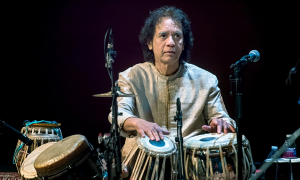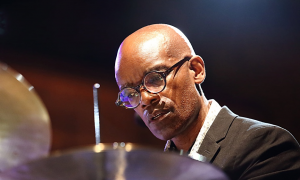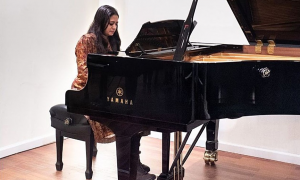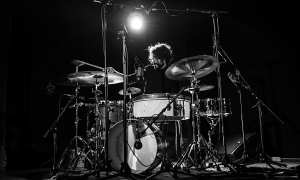Home » Jazz Articles » Under the Radar » Dai Liang, aka A Bu: Beijing Prodigy
Dai Liang, aka A Bu: Beijing Prodigy
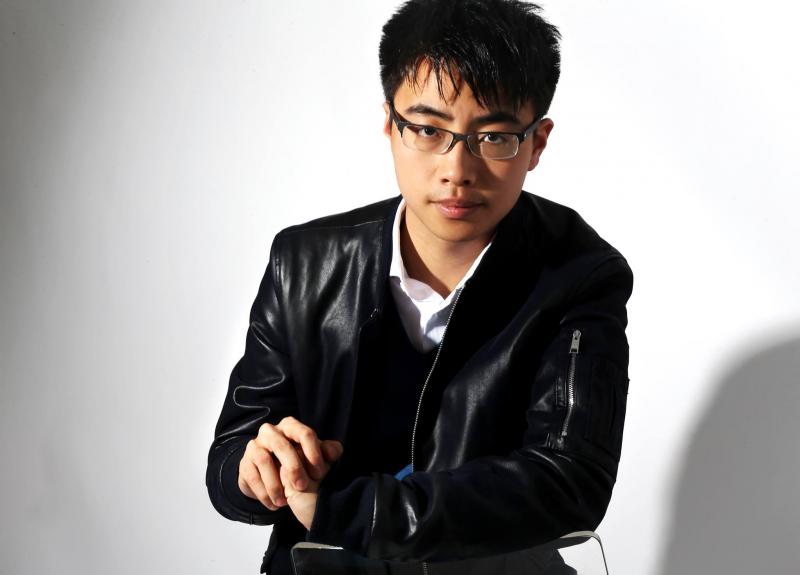
You rarely find young people playing jazz in China.
—Dai Liang aka A Bu

Yo-Yo Ma
cellob.1955
Born and raised in a small neighborhood in the eastern part of Beijing, pianist Dai Liang had an unusually early exposure to jazz given its relative scarcity in his native China. Though his father was a fan of jazz music, there was limited availability of recordings and an even more limited opportunity to hear jazz music being performed live. Still, Dai became accustomed to hearing his father's restricted collection from a very early age.
A note about naming conventions in China and about Dai's name(s) in particular: A Chinese name is written with the surname first, followed by the given name so the pianist's family name is "Dai" and his given name "Liang," typical of a Chinese tradition is a two-syllable reference to an aspirational characteristic or quality. In this case, the given name is roughly translated as "Good" or "Fine" and if applied to Dai's musical talent, it is a substantial understatement. Then there is Dai's alter ego, A Bu. We sat down to lunch in Manhattan this past September, a few blocks from where he currently studies at Julliard. One of my first questions regarded his use of a performing name that sounds neither Chinese nor metaphorical. The story behind the name turns out to be strictly familial as it is simply a nickname that his father had given him because of a similar sound that Dai would make as a young child. That designation could not have come long before Dai first sat down at the keyboard.
"I began to play the piano [at] age four. Until age nine, I had only played classical music. However, my father is a music fan. Not only in classical, but my father also encouraged me to listen more to different music such as jazz, Blues, Rock, etc. At age nine, I entered the Central Conservatory of Music to continue my classical piano education. At the same time, my father introduced me to the famous Chinese jazz pianist Mr. Golden Buddua. I had a great time with him, and he started to teach me things about jazz..." Dai's reference to "Mr. Golden Buddha" denotes China's most respected jazz pianist, " data-original-title="" title="">Kong Hongwei, and his Golden Buddha Jazz Orchestra. A favorite of the Chinese Ministry of Culture, his group has played festivals throughout China and Eastern Europe using a combination of ancient Chinese and Western musical instruments. The music of the Golden Buddha Jazz Orchestra itself bears only elemental resemblances to Western jazz while incorporating funk, pop, regional folk and dance in a global mЁҰlange of influences. As Dai points out, ..."I've heard my Chinese jazz teacher's band playing with Chinese flute and Zhongruan (a traditional Chinese folk instrument)."
Dai's own connection with Western jazz is much more direct, whether in his covers or original compositions. While he credits Kong Hongwei as a powerful musical influence, Dai also states, "In the way I see it,

Michel Petrucciani
piano1962 - 1999

Michel Camilo
pianob.1954

Antonio Hart
band / ensemble / orchestrab.1968
It was Dai's piano instructor at the Central Conservatory that suggested the young pianist move beyond his classical music training to jazz. To Dai, playing jazz comes more naturally than classical though he acknowledges that it is ..."difficult to know how to train for jazz." Nevertheless, by the age of fourteen, he was playing with the Beijing Senlin Big Band, also known as the Beijing Jungle Big Band. If the name raises eyebrows in the West, it is—again—a function of Chinese naming where the 'lin' is interpreted as "jungle."
China is rarely thought of as a source of jazz due to the less than healthy existence of the genre and in the past ten years or so, only a handful of "jazz" recordings have come out of the more open environment of Hong Kong. That music would be more accurately classified as pop or "Cantopop" (Cantonese popular music) as Chinese music critics dubbed the sound. However, there have been breakout moments such as

Wynton Marsalis
trumpetb.1961
The development of jazz in China seemed rooted in self-experimental entrepreneurship. Dai says that jazz has grown ..."in China in the past 10 years, there are many festivals...such as JZ Festival, Nine Gates Jazz Festival and many more... I would say during late 80s and 90s some musicians have started playing Jazz, although they didn't have jazz education in school, but most of them were self-learned. About how it developed, I think it just because there were many musicians who like listening jazz so they began to play some jazz by themselves."
At the 2012 Nine Gates festival in Beijing, sponsored by the media giant, Sennshieser (long-known for their microphones and headphones), Dai/A Bu sat in for a pianist who was unable to make it to the performance. President of Sennheiser Greater China, Marc Vincent, first heard Dai play here and that was the beginning of the relationship that led to his debut album on Sennheiser's own label. Dai/A Bu was already fully formed as a pianist and with the professional support was able to cut a recording that earned him a sponsored exchange spot in New York studying with the aforementioned saxophonist Antonio Hart. Prior to becoming a student at Julliard, Dai had other encounters in New York; heady experiences for a young teenager from Bejiing.
Dai relates some of those US adventures: "I did travel to U.S. for a jazz camp...it was the New York Summer Music Festival music camp in Oneonta. There, I took lessons with the jazz pianist

Randy Ingram
pianob.1978
During the 2013 JZ Festival, Dai had the opportunity to dine with

Chick Corea
piano1941 - 2021
A Bu's trio consists of drummer Shao Ha Ha and Ma Kai on bass. The trio works through several

John Coltrane
saxophone1926 - 1967

Michel Petrucciani
piano1962 - 1999

Bill Evans
piano1929 - 1980

Miles Davis
trumpet1926 - 1991

Chuck Israels
bass, acousticb.1936

Paul Motian
drums1931 - 2011
Bu inserts a tasteful cross-genre interpretation of J.S. Bach's "Invention No. 15" before moving on to an animated reading of

Dizzy Gillespie
trumpet1917 - 1993
There are trio and solo versions of Coltrane's "Giant Steps," both with masterful improvisations from Bu and demonstrating his ability to blend advanced methods and empathy for the original composition. Where he plays with speed—and he often does—it is not for the sake of pyrotechnics. These are exacting and tightly controlled improvisations of well-established and exceptional composed material. 88 Tones of Black and White is a two-disc set, the second disc being a DVD of live performances including a piano duet with Chick Corea. Bu's potential is almost off the charts and as a trio, he Kai and Ha Ha are already on a plane that many musicians never reach.
A Bu's debut was a rarity not just because of the young pianist's disproportionate talent but also because of the paucity of jazz recordings from China. A Bu's talent as a composer is now on display as well, with the release of a new trio outing, Butterflies Fly In Pairs, featuring his original compositions as well as covers of two of his piano inspirations, Chick Corea and Michel Camilo.
A Bu's original rhythm section, two talented, local Beijing musicians have been replaced with American studio musicians who bring a wider range of experience to the mix. The resourceful drummer Ryan J. Lee has broad experience ranging from work with David Grusin to the Kansas City Symphony and some gospel music for good measure. Bassist Tom Kennedy has performed or recorded with

Dizzy Gillespie
trumpet1917 - 1993

Freddie Hubbard
trumpet1938 - 2008

Al Di Meola
guitarb.1954

Randy Brecker
trumpetb.1945
A Bu's own compositions are bookended by two versions of the title track. Based on Peixun Chen's Cantonese folk theme, the opening version is fast-paced with changing tempos and complex patterns that highlight A Bu's advanced techniques. "Forever Suite Part I" is more solidly a pop-jazz tune while Part II of that title bears no resemblance. Here A Bu imparts an old world European feel in sharp contrast to the album's overall contemporary style. Hart makes the first of his two appearances on "With Mind I," an improvisational swing while "With Mind II" introduces David Watson—half of a duo known as the Chop Horns—on flute. Cecilia Stalin supplies the album's sole vocal on the ballad "Memories of Love." "The Last Trip" brings back Hart on a piece that recalls the groove-oriented style of

Bob James
pianob.1939
A Bu is clearly the featured player on Butterflies Fly In Pairs with Kennedy and Lee assuming more traditional rhythm section roles. The young pianist shows considerable maturity in his willingness to hold back on flamboyance for the sake of musicality. Having solidly established himself as a musician on his debut release, he now adds an estimable credential as a composer. It is easy to imagine that in the near future, A Bu's name will be mentioned along with some of the best jazz pianists of modern times. Hearing this album is like getting in on the ground floor.
Dai's growing reputation in jazz hasn't caused him to abandon his classical roots nor to avoid combining the genres. On November 21, 2016, he will be performing at the Moscow House of Music with saxophonist

Igor Butman
saxophone, tenorb.1961
Tags
Comments
PREVIOUS / NEXT
Support All About Jazz
 All About Jazz has been a pillar of jazz since 1995, championing it as an art form and, more importantly, supporting the musicians who make it. Our enduring commitment has made "AAJ" one of the most culturally important websites of its kind, read by hundreds of thousands of fans, musicians and industry figures every month.
All About Jazz has been a pillar of jazz since 1995, championing it as an art form and, more importantly, supporting the musicians who make it. Our enduring commitment has made "AAJ" one of the most culturally important websites of its kind, read by hundreds of thousands of fans, musicians and industry figures every month.
Go Ad Free!
To maintain our platform while developing new means to foster jazz discovery and connectivity, we need your help. You can become a sustaining member for as little as $20 and in return, we'll immediately hide those pesky ads plus provide access to future articles for a full year. This winning combination vastly improves your AAJ experience and allow us to vigorously build on the pioneering work we first started in 1995. So enjoy an ad-free AAJ experience and help us remain a positive beacon for jazz by making a donation today.

Beijing
Concert Guide | Venue Guide | Local Businesses
| More...



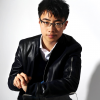

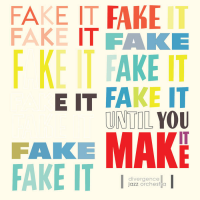



 Buy Now
Buy Now




